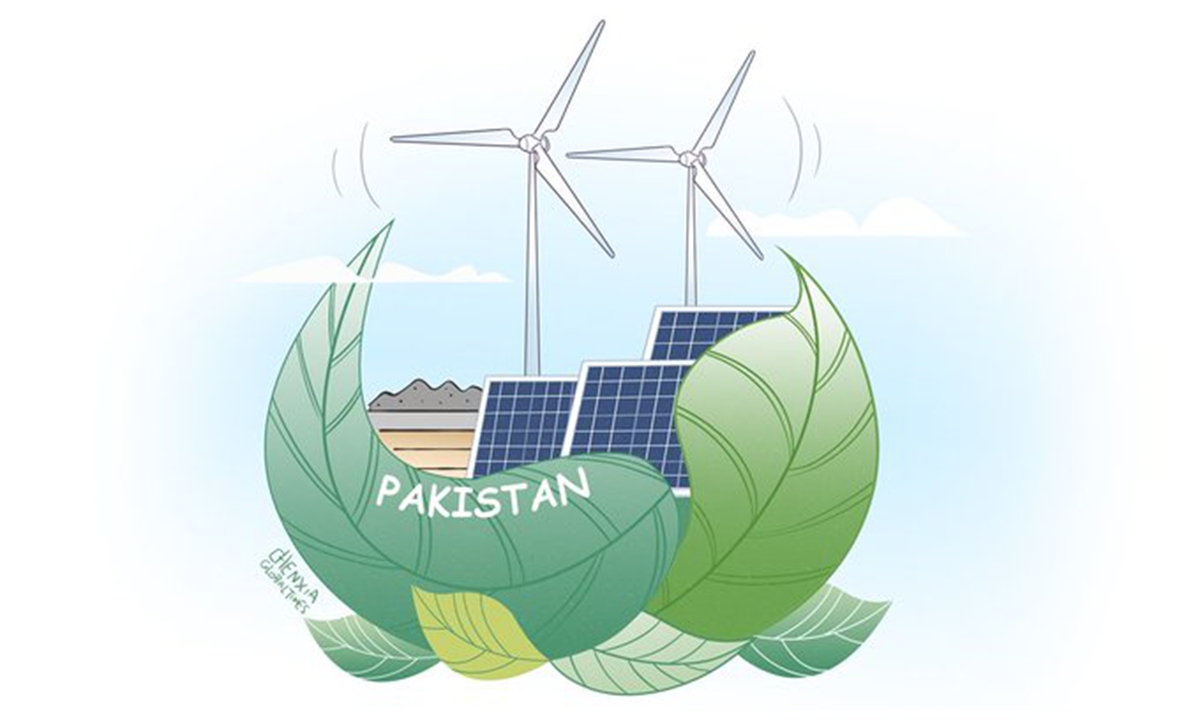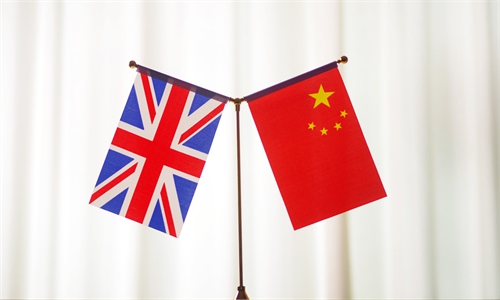
Illustration: Chen Xia/GT
In a joint statement made public on Wednesday in Islamabad, China and Pakistan agreed to work together to build the "upgraded version" of the China-Pakistan Economic Corridor (CPEC) and make it into a demonstration project for cooperation under the high-quality Belt and Road Initiative (BRI).The statement not only highlights the steadfast commitment of both countries to collaborate in addressing challenges and combating terrorist threats, but also conveys their confidence in the CPEC.
China's cooperation with Pakistan has remained steadfast and unwavering. In particular, both nations have shown a resolute commitment to advancing the construction of the CPEC, sending an unmistakable message that their dedication to this ambitious project will not be deterred by any obstacles or challenges they may encounter.
It is true that terrorist attacks have raised some concerns, but even in such difficult times, cooperation between China and Pakistan has continued to make tangible progress.
So far, under CPEC Phase I, both sides have completed 38 projects worth $25.2 billion. About 26 projects worth $26.8 billion are in the pipeline and many of those have been included in CPEC Phase II, Pakistani media outlet The Express Tribune reported in September, citing government sources.
The reason why China and Pakistan are committed to promoting an upgraded version of the CPEC despite facing difficulties lies in the fact that this project is deeply rooted in the common interests of both countries.
For Pakistan, the CPEC serves not only as a vital pillar of infrastructure development but also as a key driver of economic transformation and comprehensive social progress. The construction and operation of Gwadar Port, for example, have elevated Pakistan's status as a regional logistics hub and facilitated trade with neighboring countries.
Moreover, the CPEC encompasses multiple sectors, including energy, agriculture and information technology, enabling Pakistan to address energy shortages, improve agricultural modernization and enhance its overall competitiveness.
For China, the CPEC is both an important component of the BRI and a significant platform for expanding overseas markets. Chinese companies have gained abundant overseas investment opportunities by participating in the construction of the corridor, promoting industrial upgrading and technology exports.
For example, several energy projects under the CPEC, such as the construction of solar power plants and wind farms, not only provide Pakistan with clean and sustainable energy supplies but also offer Chinese companies a stage on which to showcase their technologies and capabilities.
More importantly, the implementation of the CPEC will provide valuable experience for China to engage in mutually beneficial cooperation with other developing countries, further enhancing China's position and influence in the global economic governance system.
Furthermore, the scope for trilateral cooperation under the CPEC is broadening. Both parties have committed to enhancing industrial collaboration, fostering international cooperation in supply chains and welcoming third countries to actively engage in CPEC cooperation. This signifies that the CPEC is not an exclusive platform but rather an open one for other nations to collectively benefit from its cooperative endeavors. This inclusive approach infuses new vitality and momentum into the sustainable development of the CPEC.
While it is undeniable that challenges and risks have cast a shadow over China-Pakistan cooperation, it is important to highlight that both sides have consistently maintained close communication and made concerted efforts toward pragmatic collaboration on common concerns.
In their joint statement, China and Pakistan reiterated their commitment to combating terrorism in all its forms with a zero-tolerance approach. This emphasis on security not only reflects their mutual appreciation and respect for cooperation but also lays a solid foundation for the sustainable development of the project.



